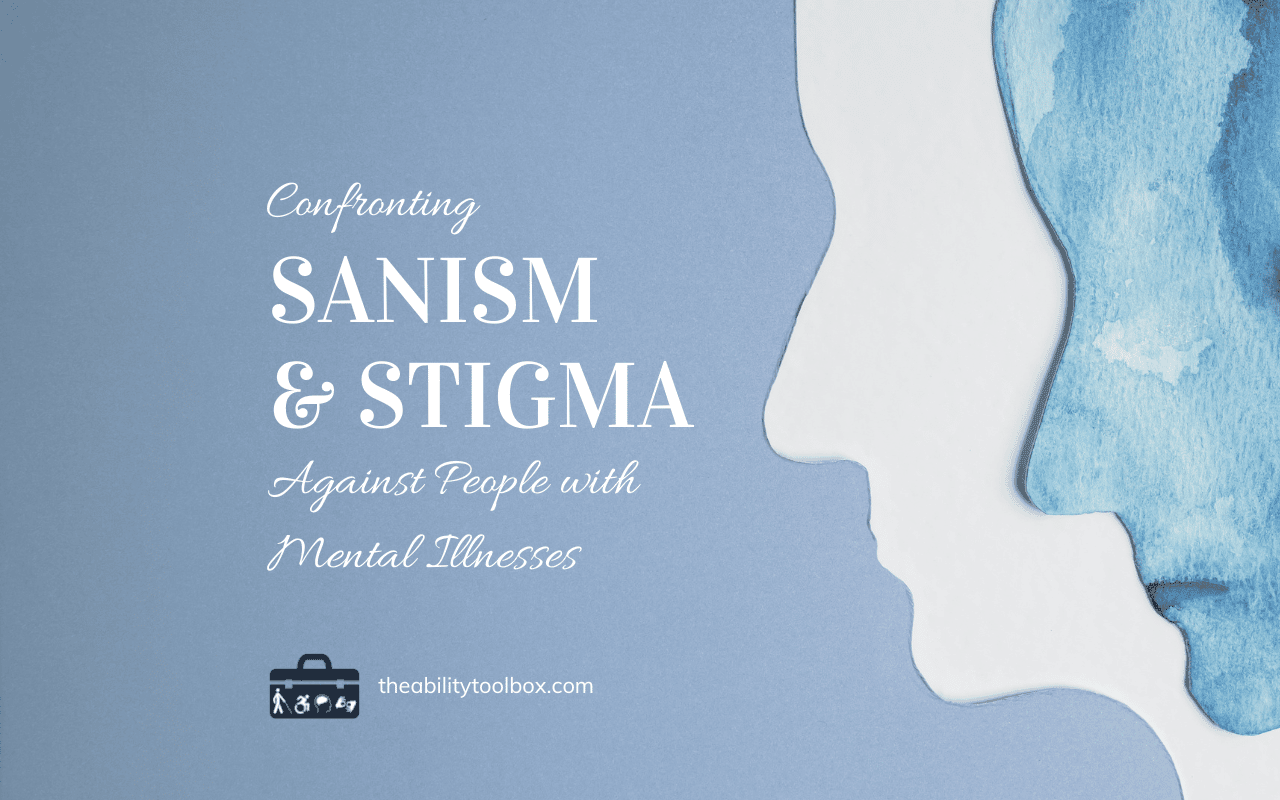Those of us with mental illnesses are often faced with ignorance or misinformed individuals. These negative interactions can make it more difficult for us to cope with our diagnoses. The stigma we face is called “sanism” and it’s past time the term was widely used.
What is sanism?
Sanism is prejudice against people with mental illness. Sanism can take the form of harassment, bullying, violence, and discrimination in healthcare, employment, housing, and other aspects of daily life.
Michael L. Perlin, JD, a lawyer and law professor at the New York Law School, wrote in an article called “Sanism and the Law” for the AMA Journal of Ethics that sanism is “an irrational prejudice against people with mental illness” similar to prejudices such as racism and homophobia. Sanism isn’t a word many know, but it was first used in the 1960s.
The word sanism was first used by a lawyer and psychiatrist named Morton Birnbaum. Birnbaum’s daughter, Rebecca Birnbaum, wrote about his work in an article for The Journal of the American Academy of Psychiatry and the Law called “My Father's Advocacy for a Right to Treatment.” In the article, she states that Birnbaum first used the term sanism while representing a man named Edward Stephens who was committed to a hospital and not receiving proper psychiatric care.
Mental Illness Myths Rooted in Sanism
Let’s look at a few of the most common sanist myths.
We are crazy.
Crazy, along with insane and psycho, are very offensive and hurtful terms. A mental illness is an illness. Let’s stop using offensive terms to describe those of us who have an illness in our brains that we didn’t sign up for.
We aren’t normal.
According to the National Institute of Mental Health, 1 in 5 US adults is diagnosed with a mental illness. Some of us have more than one diagnosis. Having a mental illness is much more common than people think, but many of us are afraid to talk about our experiences. We are afraid of being shunned by family and friends. We are afraid our mental illness will be used against us at work. We are afraid we will be considered untrustworthy or bad parents.
We are dangerous.
When we have the correct diagnosis, are treated with the correct medication, and follow our treatment plans closely, we are no more dangerous than anyone else in society. According to MentalHealth.gov, only 3% – 5% of violent situations are connected to someone with a serious mental illness. The website also states that “people with severe mental illnesses are over 10 times more likely to be victims of violent crime than the general population.”
Confronting Sanism in Daily Life
With so many of us diagnosed with a mental illness, it’s becoming hard to understand why people can’t, or won’t, recognize mental illness is real. Celebrities and athletes are speaking out about their own mental illnesses to help stop the stigma. This has helped tremendously by showing people they aren’t alone, giving them the courage to speak up, and showing that mental illness can happen to anyone. Celebrities and athletes sharing their stories also helps to convey how well people can do with the right treatment plan.
The discrimination, or sanism, we face oftentimes makes our healing journey more difficult. We are treated differently and sometimes ostracized for an incurable illness we didn’t choose to have. The negative treatment we receive can reduce our hope of living a fulfilling life and even make our symptoms worse if that loss of hope causes us to give up on our treatment plans. It also can lower our self-esteem, which can trickle over into our social relationships and our work performance.
Chances are you know someone with a mental illness. Have compassion, love them, support them, and learn from them. A strong support system is helpful and necessary for those of us with a mental illness to succeed in our recovery. Together we can end sanism.







